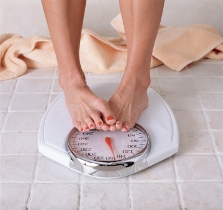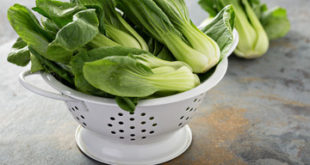By Cliff Harvey ND
I commonly ask participants in my workshops and seminars a few questions; "How many of you are actively trying to lose weight?" To which inevitably the majority of people raise their hands.
I also ask "How many of you are doing more exercise to try to lose weight?"… and nearly the same amount of hands stay raised, and finally I ask something along the lines of "And how many of you are not losing weight and are simply getting tired and hungry?" and almost always at least half of those trying to lose weight are getting almost nowhere with their fat-loss efforts and are becoming instead tired, unmotivated and are craving more and more sugar!
DIET is the key to being able to lose fat and keep it off.
We have seen in clinical practice for over 16 years, and in mountains of research evidence that exercise alone has limited value for weight-loss and that many people in spite of exercising AND supposedly eating well fail to lose weight.
Standard diets that emphasise a large carbohydrate intake (carbohydrate foods are things like potatoes, bread, pasta) and are low in fats and protein may work well for some, but will help encourage fat-loss only if they sufficiently restrictive, but they are not as effective as lower carbohydrate diets for encouraging the same fat-loss, even if you eat more!
Protein intake is especially important for fat-loss and protein optimisation should be one of the first aspects we address in creating a healthy diet.
 Research has indicated that if one reduces carbohydrate foods, replacing them with protein they will lose more fat, hold on to more muscle and will have improvements in cholesterol profiles. For example a syudy published in the Journal of Nutrition in 2003 showed that when protein intake was more than doubled from an RDA amount (around 60g) to 125g and carbohydrates were reduced by the same amount, fat-loss was nearly double with overall weightloss significantly higher. Muscle mass was also significantly spared. This study also showed that satiety (feelings of satisfaction and fullness after a meal) were significantly higher with a higher protein diet. These effects are not isolated and have been shown in many studies from the 1960s to the present day.
Research has indicated that if one reduces carbohydrate foods, replacing them with protein they will lose more fat, hold on to more muscle and will have improvements in cholesterol profiles. For example a syudy published in the Journal of Nutrition in 2003 showed that when protein intake was more than doubled from an RDA amount (around 60g) to 125g and carbohydrates were reduced by the same amount, fat-loss was nearly double with overall weightloss significantly higher. Muscle mass was also significantly spared. This study also showed that satiety (feelings of satisfaction and fullness after a meal) were significantly higher with a higher protein diet. These effects are not isolated and have been shown in many studies from the 1960s to the present day.
So if we want to feel fuller for longer, lose more body-fat and help to normalise blood lipid and cholesterol profiles we should make sure that we eat enough protein and make it the base of all of our daily meals!
Protein foods include meat, fish, poultry, eggs and nuts and seeds. High quality protein powders in smoothies area also a great option for convenient meals that can provide a nutrient packed meal.
Example protein packed smoothie.
Green Power Protein Smoothie:
1 handful frozen Kale
1 small banana
½ cup blueberries
2 scoops of NuZest Clean Lean Protein
2 Tbsp. Almond Butter
2 tsp. NuZest Good Green Stuff
Read more about Clean Lean Protein here.
Or buy in store here (get 10% off)
About the author:
Cliff Harvey is a naturopath and registered clinical nutritionist with a clinic on Auckland's North Shore. Cliff also lectures on the topic of sports nutrition at Auckland's Wellpark College and runs education programmes for trainers, coaches, naturopaths and nutritionists. He is pursuing research at AUT University in the area of nutritional metabolism.
Over the past 15 years Cliff has worked with many high-performing athletes competing at Olympic, world championship and Commonwealth Game level.
Cliff is one of the co-creators of the NuZest range of products: Good Green Stuff and Clean Lean Protein.
More articles…
What Is Protein and Why Do We Need It?
Are You Starving on a Full Stomach?
6 Things You Need To Do For Optimal Brain Health
Read more from Cliff Harvey here









majorminor - 11 years ago
Actually there is much info to show diets don’t work, but google Food Matters and get insight into Fat Triggers, and some guys who have dropped 100s of pounds, then once you have done that do the same for Dr Peter Attia and learn about Ketogenics. My advice – dump anything that has the words Lo, Low or Free on it. It will be a processed food item that will help keep the weight on.